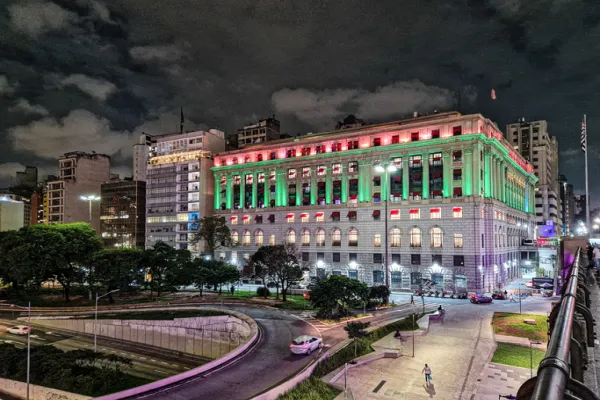The International Monetary Fund fosters global financial instability, deepens recessions in developing countries with misguided policies of austerity, widens the gap between rich and poor - and generally makes a mess of anything it touches.
By Deepak Gopinath
July 2002
Institutional Investor Magazine
The International Monetary Fund fosters global financial instability, deepens recessions in developing countries with misguided policies of austerity, widens the gap between rich and poor - and generally makes a mess of anything it touches.
Does this seem like the screed of a wild-eyed protester during the 1999 World Trade Organization meetings in Seattle? Perhaps. But it's also the considered judgment of Joseph Stiglitz, a 2001 Nobel laureate for economics, a former World Bank chief economist and chairman of the president's Council of Economic Advisers under Bill Clinton.
In his new book, Globalization and Its Discontents, Stiglitz decries globalization, which he defines as "international economic integration and the removal of trade barriers," as a disaster for the developing world. Devoted to an ideology of "market fundamentalism," Stiglitz writes, the so-called Washington Consensus of the IMF and its sister institutions (especially the World Bank and the WTO) was doomed to fail.
"Washington Consensus policies were based on a simplistic model of the market economy . . . in which Adam Smith's invisible hand works, and works perfectly." But, he notes, "Whenever information is imperfect and markets incomplete, which is to say always, and especially in developing countries, then the invisible hand works most imperfectly." Here the author's credentials are hard to challenge: Stiglitz won a Nobel Prize for his research into market failures caused by "information asymmetries."
Stiglitz is a brilliant economist and a clear, accessible writer. Yet too much of the book feels slapdash, perhaps because it was rushed into print to take advantage of the celebrity that attends a Nobel Prize. Readers will also be disappointed by the dearth of inside color that would have brought the economist's arguments to life. (As the World Bank's chief economist, Stiglitz was an active participant in many of the events he describes.) Where, for example, is an account of the debate within the IMF and World Bank about the U.S. Department of Treasury's insistence on bailing out Russia in 1998? What was the substance of the dispute between Stiglitz and thenTreasury secretary Lawrence Summers that led to the author's resignation from the World Bank in 2000? Stiglitz doesn't say.
Missing too is serious scrutiny of World Bank policies; Stiglitz treats his old employer with kid gloves. But the Bank can certainly be taken to task for countless failed projects and the waste of development aid.
Focusing instead on the IMF, Stiglitz describes the devastating effects of the Fund's tough economic medicine on developing countries. The IMF viewed "their suffering and pain as part of the process of redemption," Stiglitz writes. Thus in 1997 the IMF insisted that Asia's crisis-hit countries impose contractionary macroeconomic policies - the opposite of what policymakers in rich countries do when their own economies weaken. These moves pushed developing countries further into recession.
Stiglitz correctly identifies the IMF as a "political institution." The Fund's shareholders are represented by the Finance ministers and central bank governors of member countries, who necessarily reflect the perspectives of the financial community. This, Stiglitz argues, is the only way to explain IMF policies of capital account liberalization and big bailouts that allowed foreign banks and local elites to get their money out of crisis-stricken countries even as their citizens suffered the painful effects of the Fund's austerity policies.
"The IMF thinks that what the financial community views as good for the global economy is good for the global economy and should be done," he claims. "Globalization, as it has been advocated, often seems to replace the old dictatorships of national elites with new dictatorships of international capital."
Globalization need not - and cannot - be eliminated, Stiglitz says, but it must be "reshaped." He writes, "When it is properly, fairly run . . . there is a possibility that it will help create a new global economy in which . . . the fruits of growth are more equitably shared."
The IMF itself admits the need for reform. It's also said that it wants to move away from big bailouts, but much more must be done, Stiglitz rightly concludes. He recommends a more gradual approach to economic reform, citing China and Poland as examples of countries that have successfully liberalized at their own pace. He advocates increased representation of poor countries at the IMF - and not just by their Finance ministers - and he calls for greater transparency among international financial institutions and a sharper focus on the impact of policy on poverty.
That doesn't sound too radical, does it?





